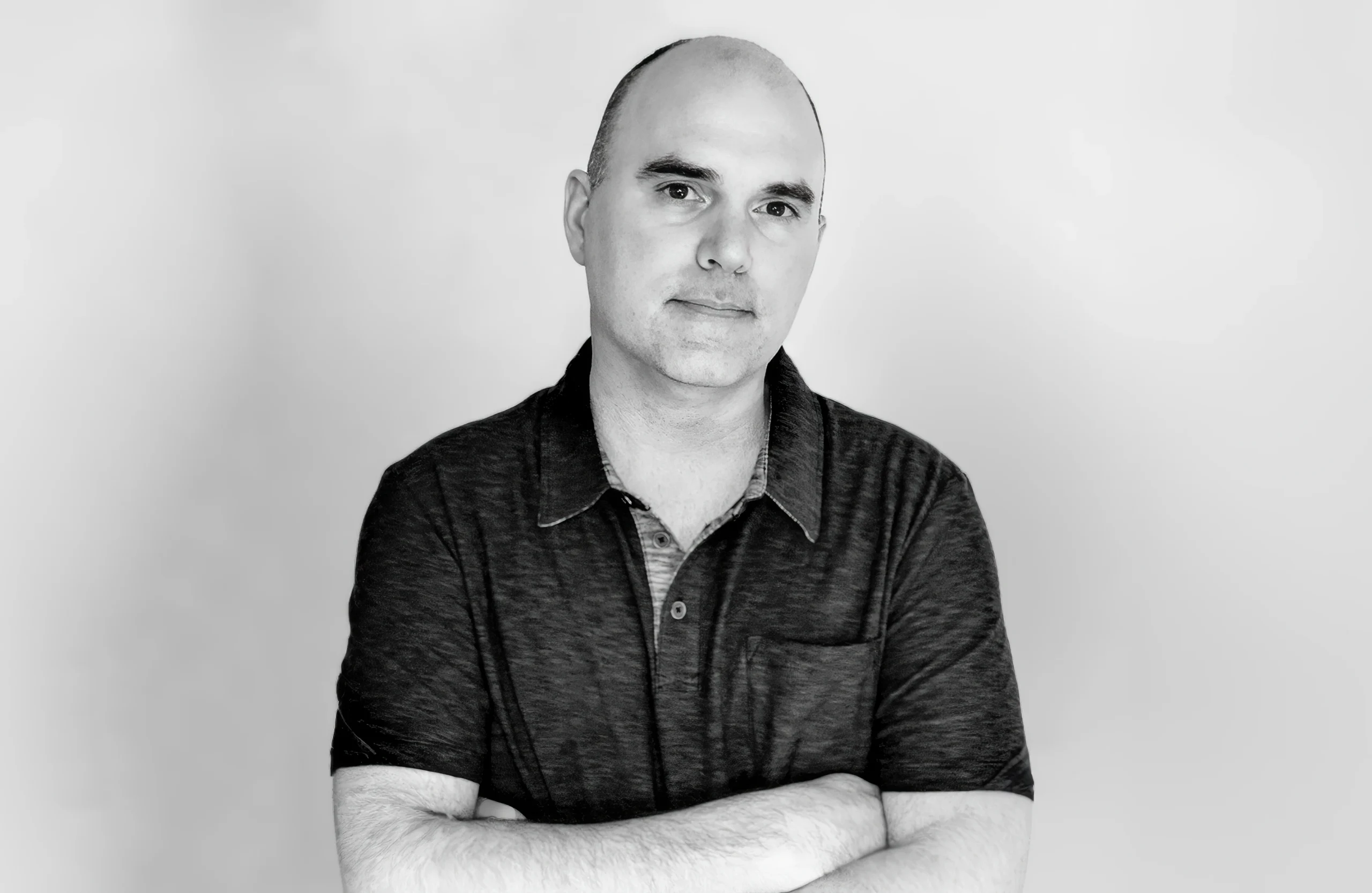A bloated service list isn’t a flex; it’s a red flag.
You really can’t be everything to everyone. “We do A, B, C; as well as X, Y, and Z.”
Stop it.
Saying yes to everything is the fastest way to stall growth. Believe me when I say this; and this is a bit of “do what I say, not what I do.”
Here’s what happens when you lose focus: You become average at everything instead of great at something. Your margins get squeezed because you’re competing with true specialists. Your team gets confused about what you actually do.
You need to define what you’re great at; and protect it at all costs.
Every “yes” to the wrong project is a “no” to the right one.
Ditch the menu-of-all-trades approach. Start dominating one thing that matters.
When saying yes becomes your downfall
Most businesses fall into this trap because it feels logical. More services should mean more revenue, right? More ways to help clients should create more opportunities.
Why businesses think more services = more success
The math seems simple: If you offer five services, you have five ways to make money. If you offer ten services, you have ten ways to make money.
So businesses keep adding. They see a client need they can’t fulfill, so they build that capability. A competitor offers something they don’t, so they add it to their menu.
Pretty soon, their website looks like a restaurant menu with 200 items. And just like those restaurants, everything starts tasting mediocre.
The problem is that more services don’t actually create more opportunities. They create more complexity, more confusion, and more competition on price instead of value.
The seductive lie of “diversification”
Business schools teach diversification as risk management. Don’t put all your eggs in one basket. Spread your risk across multiple service lines.
But this advice comes from the investment world, where you’re buying existing assets. In business, you’re building capabilities from scratch.
Building ten mediocre capabilities is infinitely harder than building one exceptional capability. And it’s exponentially less valuable.
Diversification in business usually means you’re afraid to bet on yourself. You’re hedging instead of focusing on what you could dominate.
Why your website sounds like a grocery list
Every unfocused business pays the same predictable costs. These aren’t theoretical problems; they’re mathematical certainties.
Research shows that companies focusing on a core offering grow revenue 40% faster than their diversified competitors. Here’s why:
- You become average at everything instead of great at something – Your team spreads their expertise thin. You can’t invest deeply in any one area because you’re trying to cover everything.
- Your margins get squeezed – You’re competing with specialists who do one thing exceptionally well. They can charge premium prices while you compete on “we do it all.”
- Your team gets confused about what you actually do – If you can’t explain your focus in one sentence, neither can your employees. Sales conversations become education sessions.
- Marketing becomes impossible – You can’t create focused messaging when you serve everyone. Your content appeals to no one because it tries to appeal to everyone.
- Quality suffers across the board – You’re constantly context-switching between different types of work. Nothing gets your full attention or best thinking.
- Client results become inconsistent – Some projects hit, others miss. Clients can’t predict what they’ll get because you can’t either.
- Your best people leave – Top talent wants to work on challenging, focused problems. They don’t want to be generalists doing a little bit of everything.
The market rewards depth, not breadth. And unfocused businesses always compete on price because they have nothing else to differentiate on.
The specialist advantage
Focused businesses operate in a completely different economy than generalists. They play by different rules and win by different metrics.
Competing on value vs. price
When you’re the go-to expert for a specific problem, clients don’t comparison shop. They hire you because you’re the obvious choice.
Specialists can charge 2-3x what generalists charge for the same work because they’re not selling time; they’re selling outcomes. Clients pay for certainty, not hours.
You stop competing in RFPs with ten other agencies. Instead, clients call you directly because they know exactly what you do and why you’re the best at it.
Your sales process becomes education, not persuasion. You teach prospects about their problem and how to solve it. By the end of that conversation, hiring anyone else feels risky.
Why focused businesses win
Focus creates compound advantages that generalists can’t match:
Deep expertise builds faster. When you solve the same type of problem repeatedly, you get exponentially better at it. You see patterns others miss. You develop proprietary methods.
Word-of-mouth becomes effortless. People can easily explain what you do and recommend you. “They’re the ones who help SaaS companies fix their onboarding” is a powerful referral.
Content marketing actually works. You can create genuinely helpful content because you understand one audience deeply. Your expertise shows through instead of generic advice.
Team development accelerates. Everyone gets really good at the same thing. Knowledge compounds across the team instead of being scattered.
Pricing power increases over time. The more known you become for solving a specific problem, the more you can charge. Specialists become more valuable, not commoditized.
How to find your focus
Most businesses know they should focus but don’t know how to choose. They’re afraid of leaving money on the table or limiting their options.
The 3-factor focus audit
Look at your last 20 projects. Rate each service you offer from 1-5 on these three factors:
- Profit: Is this highly profitable without competing on price?
- Passion: Does your team genuinely enjoy and excel at this work?
- Performance: Do you consistently deliver exceptional results?
Any service scoring below 12 total points is on the chopping block.
This intersection; high profit, high passion, high performance; that’s your sweet spot.
Don’t focus on what you think you should be good at. Focus on what the evidence shows you are good at.
Ask these follow-up questions about your highest-scoring services:
- Are we genuinely better at this than most competitors?
- Do clients specifically seek us out for this?
- Does this leverage our existing strengths?
- Would we be excited to do only this for the next three years?
If the answer to any of these is no, keep looking.
Protecting your zone of genius
Focusing isn’t just about what you choose to do. It’s about what you choose not to do. And that’s often harder.
Every yes is a no to something else
When you take on a project outside your focus, you’re not just adding work. You’re subtracting from your ability to dominate your chosen area.
That web design project might pay the bills, but it’s taking time and mental energy away from the marketing strategy work that makes you special.
That small client might be easy money, but they’re preventing you from pursuing the enterprise client who could transform your business.
Opportunity cost is real. Every hour spent on unfocused work is an hour not spent becoming the best in the world at your thing.
Creating your “no” criteria
The hardest part about saying no is that some opportunities look really good. They pay well. The client is nice. The work seems interesting.
But if it doesn’t align with your focus, it’s still the wrong choice.
Create clear criteria for what you say yes to. Write them down. Share them with your team. When tempting opportunities arise, check them against your criteria.
Good opportunities that don’t fit your focus aren’t good opportunities for you. They’re good opportunities for someone else.
Building momentum in your zone of genius
Focus creates momentum that compounds over time. Every focused choice makes the next focused choice easier and more valuable.
When you consistently say no to distractions, you create space for your best work. Your reputation builds in a specific area. Referrals become more targeted and valuable.
Your team develops deep expertise instead of shallow familiarity. Your processes get refined. Your results get better.
Three years of focused effort creates exponentially more value than three years of scattered effort across multiple areas.
Double down on your core strength. Because the riches are in the niches, and the best businesses solve specific problems exceptionally well.




